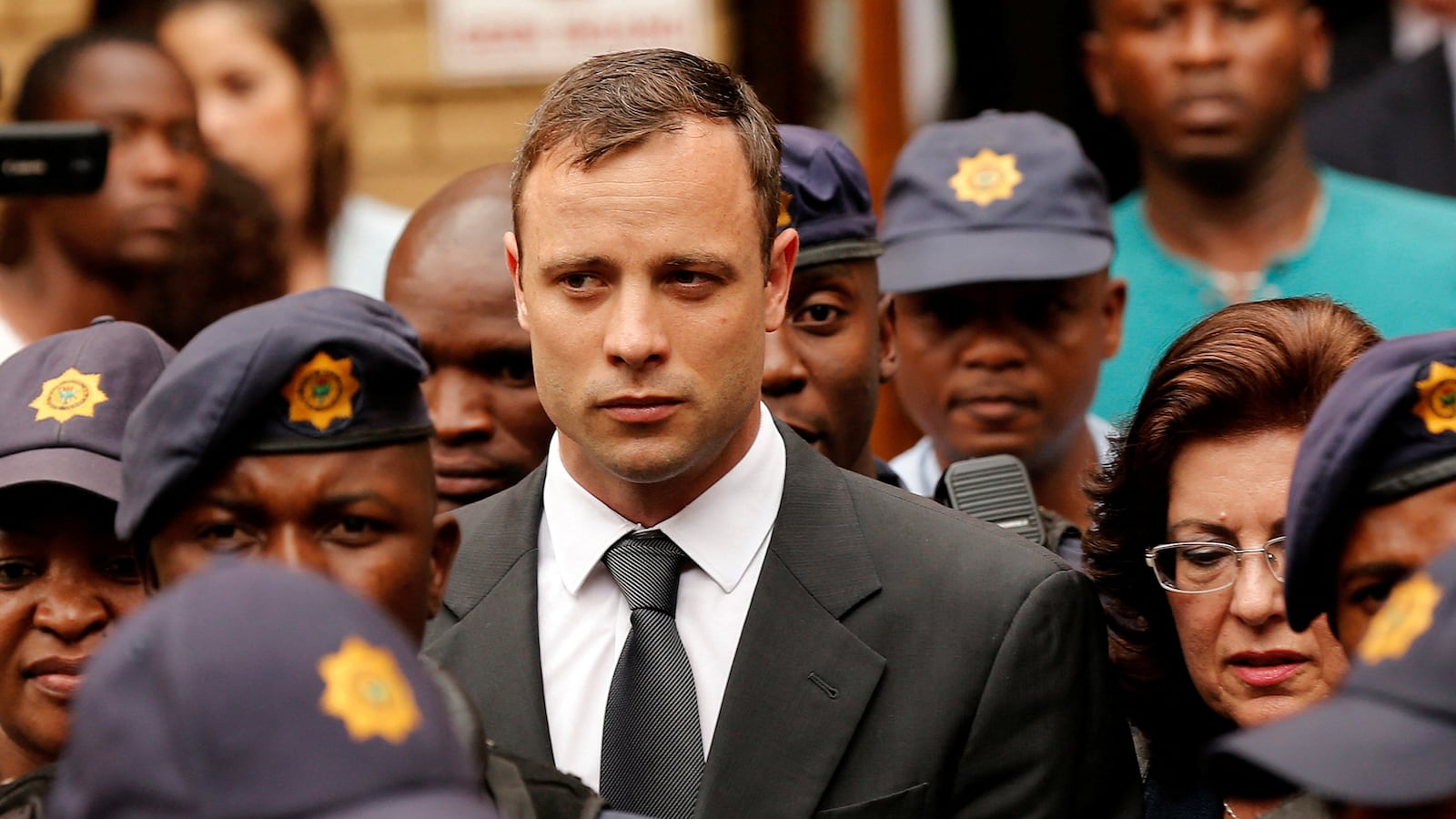Oscar Pistorius was denied parole on Friday, forcing him to continue serving his murder sentence for the 2013 killing of his girlfriend, Reeva Steenkamp.
The Paralympic gold medalist, 36, had hoped to be released from prison early. But at a closed-door hearing, a South African parole board found that Pistorius still poses a threat to public safety.
He will now have to wait another year before applying for parole again. Before the hearing started Friday, Steenkamp’s mother, June Steenkamp, told reporters that she was against Pistorius’ release.
“I don’t believe his story,” she said as she arrived at the Atteridgeville Correctional Centre in Pretoria, according to the BBC. “I don’t believe Oscar is remorseful… or rehabilitated.”
On Valentine’s Day in 2013, Pistorius fired four gunshots through a bathroom door at his home in Pretoria. Three of the bullets struck Steenkamp, who was on the other side, and she died from her injuries. At his murder trial the following year, Pistorius claimed that he had mistaken Steenkamp, for an intruder and that he didn’t mean to kill her.
Prosecutors countered that he had acted deliberately after an argument with Steenkamp, 29 and he was found guilty of culpable homicide. He was initially sentenced to a maximum five-year sentence, but his conviction was later upgraded to murder and his sentence extended to 13 years and five months in 2017.
Speaking before the parole hearing Friday, the Steenkamps’ lawyer, Tania Koen, said Pistorius’ victim’s parents maintained their belief that he intended to kill Reeva, and that the murder was a lifelong sentence for them. “For them, it’s 10 missed birthdays, it’s 10 Mother’s Days, Father’s Days, Christmases, so time hasn’t healed for them,” Koen said. “They don’t feel that he should be released.”
Last year, Pistorius met with Steenkamp’s father, Barry, as part of a “victim-offender dialogue” program. The parole board also took into consideration Pistorius’ disciplinary record while serving his sentence and the educational and training courses in which he’d participated over the last decade, but nevertheless ruled against his release.
Pistorius—who was dubbed the “Blade Runner” because of the prosthetic legs on which he ran—was considered a sporting hero before his shocking murder trial. He made history at the 2012 Olympic Games when he became the first double-amputee to compete at the Olympics.






